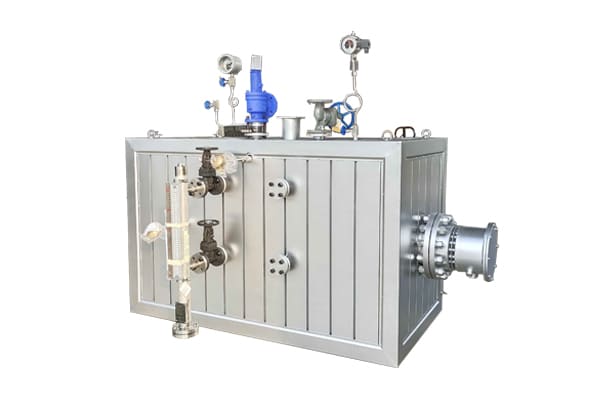1. Overview of Diphenyl Steam Generator
The diphenyl steam generatorhttps://8ruiyan.com/en/boiler-products/ is a specialized heating device that uses diphenyl or its mixtures (such as diphenyl-diphenyl ether) as a heat transfer medium. It is widely used in industrial fields requiring stable high-temperature heat sources. Through the vaporization-condensation cycle of diphenyl, it achieves efficient heat energy transfer, providing reliable thermal support for industries such as chemical and pharmaceutical production.

2. Core Working Principle
The operation of a diphenyl steam generator is based on the phase change principle of the heat carrier:
- Heating and Vaporization: Liquid diphenyl is heated to its boiling point (approximately 255°C for pure diphenyl, up to 400°C for mixtures) in the heating unit, converting it into high-temperature steam.
- Steam Transport: The high-temperature steam is delivered to heat-using equipment via insulated pipelines.
- Condensation and Heat Release: The steam condenses within the heat-using equipment, releasing significant latent heat.
- Return and Regeneration: The condensate returns to the generator via gravity or circulation pumps, completing the closed-loop cycle.
3. Key System Components
The system consists of five main modules:
- Heating System: Electric/gas heating modules providing initial energy
- Evaporation Unit: Specially designed vaporization chamber
- Heat Exchange System: Includes steam distributors and condensation devices
- Fluid Circulation System: High-temperature resistant pumps and specialized piping
- Intelligent Control System: Integrated monitoring of temperature, pressure, and flow parameters
4. Technical Characteristics Analysis
4.1 Significant Advantages
- Exceptional High-Temperature Stability: Can continuously provide 400°C heat at atmospheric pressure
- Outstanding Heat Transfer Efficiency: Phase change heat transfer efficiency exceeds 90%
- Low-Pressure Safe Operation: System pressure remains at only 0.3-0.5MPa under high-temperature conditions
- Hassas Sıcaklık Kontrolü: Temperature fluctuations can be controlled within ±1°C
4.2 Usage Limitations
- Higher Initial Investment: Equipment costs are about 1.5-2 times that of conventional steam systems
- Stringent Maintenance Requirements: Regular testing for diphenyl degradation is necessary
- Environmental Handling Requirements: Waste diphenyl requires professional disposal
5. Typical Industrial Applications
Primary application scenarios include:
- Advanced Chemical Industry: Polymer material synthesis, specialty resin production
- Biopharmaceuticals: Vaccine production equipment sterilization, lyophilizer heating
- New Energy Sector: Lithium battery separator drying, solar cell manufacturing
- Specialty Textiles: Carbon fiber precursor heat treatment, ballistic material processing
6. Technological Development Frontiers
Industry technology evolution directions:
- Eco-Friendly Heat Transfer Media: Development of hydrogenated diphenyl and other environmentally friendly alternatives
- Intelligent Upgrades: Application of digital twin technology for virtual commissioning
- System Integration: Modular designs to reduce on-site installation time
Professional Outlook
As a critical technical equipment in industrial heating, diphenyl steam generators demonstrate unique advantages in high-temperature precision heating scenarios. With advancements in new materials and intelligent control technologies, next-generation equipment will achieve breakthroughs in energy efficiency and environmental performance, further solidifying their key position in specialized industrial heating applications.
For technical inquiries, contact Ruiyuan’s official support team!
📞 📞 📞
Whatsapp:86-19106101570
wechat:86-19106101570
email:nieyili@cnryan.com
